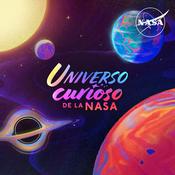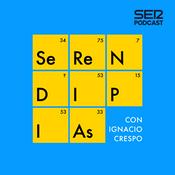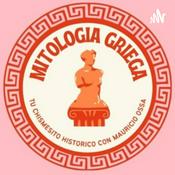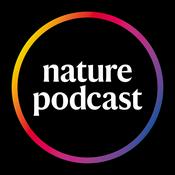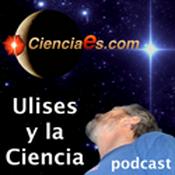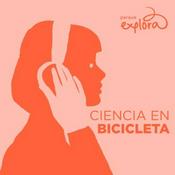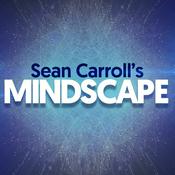61 episodios

Neuroscience of Resilience
26/11/2025 | 28 min
Last episode, we dug into how people lose their sense of safety and control when something — or someone — hijacks it.This week, we’re picking up the story from there: what it takes to rebuild.What does it look like to find your footing after an experience that knocks you off course?Why do some people regain a sense of agency faster than others?And what does real resilience look like when you're living it, not just talking about it?If you have any topic suggestions for future episodes, don't hesitate to reach out! Send us an email at [email protected]'d love to hear from you.REFERENCESHunter, Gray & McEwen — The Neuroscience of ResilienceElsevier B.V. — Neuroscience of Resilience for Mental HealthBaratta, Seligman & Maier — From Helplessness to Controllability: Toward a Neuroscience of ResilienceRuth Feldman — What Is Resilience: An Affiliative Neuroscience ApproachAlex Iantaffi — https://www.alexiantaffi.com/

Neuroscience of Cults
18/11/2025 | 38 min
If you think you’d never be pulled into a cult, that belief itself is part of the danger. In this episode, we explore why the brain is far more influenceable—and more predictable—than most of us want to believe.We take a closer look at what happens when belonging, something we’re biologically wired to seek, becomes a pathway into harm. Together, we examine how group dynamics, stress, and relationship patterns can quietly shift a person’s behavior and sense of self. Laine brings research and real-world examples that show just how thin the line can be between healthy connection and unhealthy devotion.If you have any topic suggestions for future episodes, don't hesitate to reach out! Send us an email at [email protected]'d love to hear from you.REFERENCESCults: A Natural Disaster—Looking at Cult Involvement Through a Trauma LensShelly RosenPedagogical, Neuropsychological and Social Conditions of Shaping the Identity of Cult Group FollowersMariusz Gajew

Neuroscience of Leadership
24/9/2025 | 28 min
What does neuroscience reveal about great leadership—and why does it matter now more than ever?In this episode, we explore the brain science behind leadership: how it guides us in uncertainty, shapes culture, and unlocks human potential. From Microsoft’s near-collapse to its stunning revival under Satya Nadella, we’ll uncover what happens in the brain when leadership fails—and what changes when it succeeds. You’ll hear how trust, safety, and connection transform not just teams, but entire organizations, driving innovation and resilience.If you have any topic suggestions for future episodes, don't hesitate to reach out! Send us an email at [email protected]'d love to hear from you.REFERENCESDavid Rock & Jeffrey Schwartz — Neuroscience of LeadershipManu Melwin Joy — The Neuroscience of LeadershipKimberly Schaufenbuel — The Neuroscience of Leadership: Practical Applications

Neuroscience of Teamwork
15/8/2025 | 46 min
Humans are born dependent, slow, and vulnerable—but we’ve survived by working together. In this episode, we explore the neuroscience that makes teamwork possible, and why collaboration is more than a soft skill—it’s a biological necessity.From mirror neurons and social cognition to trust, reward systems, and brain synchrony, we break down what’s really happening in your brain when you collaborate—and what it takes to build a team that actually works.If you have any topic suggestions for future episodes, don't hesitate to reach out! Send us an email at [email protected]'d love to hear from you.REFERENCESDavid A. Waldman, M.K. Ward, William J. Becker — Neuroscience in Organizational BehaviorStephanie Balters, Grace Hawthorne, Naam Mayseless — Of Team Cooperation Versus Team CollaborationPaul Zak — The Neuroscience of TrustM.K. Ward, Stefan Volk, William J. Becker — An Overview of Organizational NeuroscienceMohammed Algumaei, Imali T. Hettiarachchi, Mohamed Farghaly, Asim Bhatti — The Neuroscience of Team Dynamics: Exploring Neurophysiological Measures for Assessing Team PerformanceDiego A. Reinero, Suzanne Dikker, Jay J. Van Bavel — Inter-brain Synchrony in Teams Predicts Collective PerformanceHua Xie, Iliana I. Karipidis, Amber Howell, Manish Saggar et al. — Finding the Neural Correlates of Collaboration Using a Three-person fMRI Hyperscanning ParadigmXinmei Deng, Meng Yang, Xiaomin Chen, Yong Zhan — The Role of Mindfulness on Theta Inter-brain Synchrony During Cooperation Feedback Processing: An EEG-based Hyperscanning Study

Neuroscience of Rape
25/6/2025 | 43 min
Most people agree that rape is wrong. But far fewer understand what it actually is—and what it isn’t. In this episode, we confront the myths and misconceptions that continue to shape how we define rape, treat survivors, and pursue justice.We explore the neuroscience behind trauma responses like freezing and fawning, and why these involuntary reactions are still so often misunderstood in courtrooms, conversations, and cultural narratives. From the impact of the #MeToo movement to the hardwired survival mechanisms of the brain, we examine what needs to change—and why it matters.This is not an easy conversation. But it’s one we all need to have.If you have any topic suggestions for future episodes, don't hesitate to reach out! Send us an email at [email protected]'d love to hear from you.REFERENCESMedicolegal Findings of Rape Victims: A Retrospective Study of 69 Cases at a Tertiary Care Hospital in Dhaka CityPalash Kumar Bose, Mamtaz Ara, Md. Syedur Rahaman, Mohammad Jubaidul Kabir, Prodip BiswasAssault-Related Self-Blame and Its Association with PTSD in Sexually Assaulted Women: An MRI InquiryZohar Berman, Yaniv Assaf, Ricardo Tarrasch, Daphna JoelRape Myth Scale: Factor Structure and Relationship with Gender Egalitarianism Among Japanese ProfessionalsMasayo Uji, Masahiro Shono, Noriko Shikai, Toshinori KitamuraNeuroscience Evidence Counters a Rape MythEbani Dhawan, Patrick HaggardNeuropsychological and Electrophysiological Evaluation After Rape: A Case Study of a Teenage GirlLucía Ester Rizo-Martínez, Miguel Ángel Guevara, Luis Francisco Cerdán, Francisco Abelardo Robles-Aguirre, Araceli Sanz-Martin, Marisela Hernández-González
Más podcasts de Ciencias
Podcasts a la moda de Ciencias
Acerca de The Brain Blown Podcast
Escucha The Brain Blown Podcast, Universo curioso de la NASA y muchos más podcasts de todo el mundo con la aplicación de radio.net
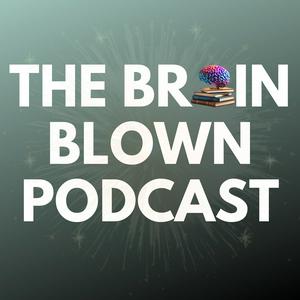
Descarga la app gratuita: radio.net
- Añadir radios y podcasts a favoritos
- Transmisión por Wi-Fi y Bluetooth
- Carplay & Android Auto compatible
- Muchas otras funciones de la app
Descarga la app gratuita: radio.net
- Añadir radios y podcasts a favoritos
- Transmisión por Wi-Fi y Bluetooth
- Carplay & Android Auto compatible
- Muchas otras funciones de la app


The Brain Blown Podcast
Descarga la app,
Escucha.
